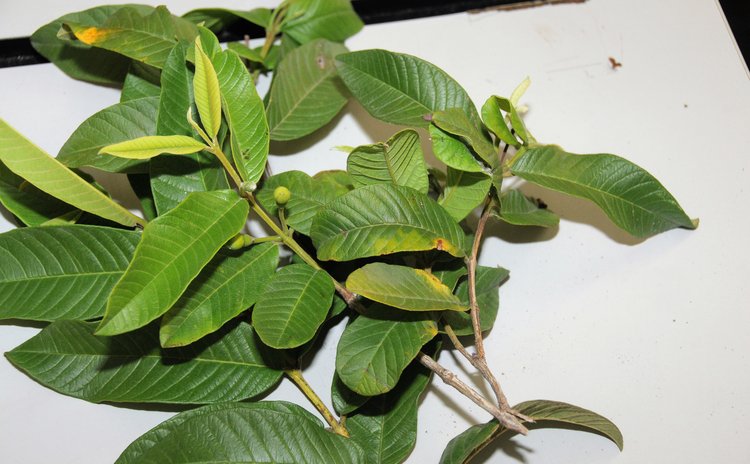The herbal way of life

While pharmaceutical medicine is a big part of life, many of us still reach for a 'bush' in the garden to tackle nagging symptoms of the flu, other diseases and injuries.
A casual walk along the streets of Roseau will most assuredly include an encounter with a tray of brown paper packages of herbs on sale.
The Rastafarians among us embrace herbs and view them as essential for living a natural, spiritual life.
One Rastafarian and a spokesman for the House of Nyabinghi, Bernard Shaw chuckled, "Anywhere you see a Rasta, you see a herb tree. That's how we usually say it."
"Rasta and herbs go hand in hand . . . that is our culture . . . Our old people would put six leaves in a cup of water and they knew exactly what they were doing," he said, adding that the practice of use herbs was handed down by ancestors.
Another Rastafarian described her way of life as "herbal", not only because of the herbal medicines she takes, but because of her plant-based diet.
"To me, it's not telling a person to go and drink or eat that because you are sick. Live a clean way of life, detoxifying with herbs, avoiding meat..." she says.
She has used herbs to deliver her children, treat and prevent diseases and injuries and has given her children and grandchildren herbs on a regular basis.
During her pregnancies, she used raspberries everyday for six to seven months to enable quick and easy deliveries.
And, upon the birth of her children, an elder would bring sweet marjoram for her to give the baby immediately after birth.
She also recommends veven for the nerves, high blood pressure and diabetes.
For her, herbs are a must every day. Apart from a daily brew of veven tea, she drinks teas made from lemongrass, young soursop leaves, mauby and cinnamon.
As part of her lifestyle, she routinely makes teas from whatever herbs she can get -- rosemary, lime leaves, aloes and more.
She recommends spice tea with castor oil to break down cholesterol, clots and mucous in the body.
Further, she strongly suggests using aloes for burns and cuts. "It's like a miracle," she says, noting that it can be used as a laxative as well.
However, it doesn't mean she won't take a pharmaceutical drug if she cannot get the herb she needs immediately.
"The herbal life has been around long before we can imagine. But the choices we have now and the easier way to just pop a pill can be dangerous," she warns.
If a person develops an illness or injury, she recommends a visit to a medical doctor because a herbalist may not have the necessary education to treat the disease.
However, the herbalist may have cultural knowledge of an herb that an afflicted person could consider as a treatment option.
"If the herb is not used right, it will not have any effect on you . . . it may even have a reversal. And if you are not sure about the dosage, use a lower intensity dose," she says.
The Rastafarian said that back in the day, herbs were a bigger part of life in Dominica.
"Our grandparents didn't know herbs as something to resist. It's just something they had and used. The herb was part of us…it was almost like an extension of us.
"Everybody had a backyard and if your backyard didn't have what you wanted, you would go to your neighbor.
"It's just a pity we don't have the wisdom to incorporate what the modern life is offering and what our ancestors left for us," she laments.
She prefers to use fresh herbs. However, if the herbs must be dried, the elders taught that they should be hung in a cool place by their stems.
In her view, pharmaceuticals can be useful, but she is troubled by the extent to which some manufacturers go to maximize profits.
"They would prefer to know we don't have a backyard of herbs because it's threatening their market," she asserts.
"So they would send all kinds of biological warfare . . . make sure we can't go in our backyard for medicines . . . so we can step in the drug store and buy and buy and buy!"




